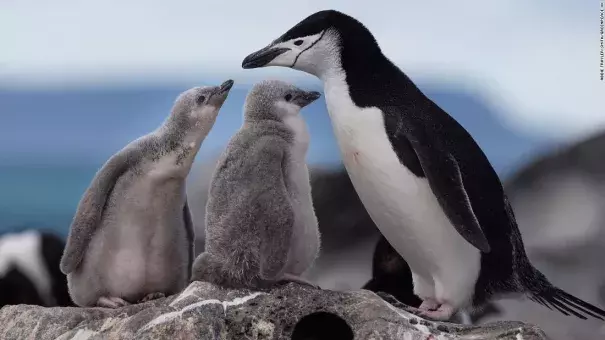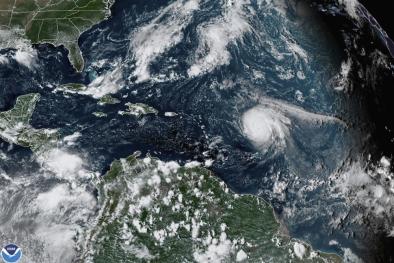Some Antarctic penguin colonies have declined by more than 75% over 50 years

Climate Signals Summary: Climate change is leading to warmer oceans and sea ice decline, both of which are fundamentally changing many ocean habitats.
Article Excerpt: Penguin colonies in some parts of the Antarctic have declined by more than 75% over the past half century, largely as a result of climate change, researchers say.
Scientists discovered that colonies of chinstrap penguins -- also known as ringed or bearded penguins -- have dropped dramatically since they were last surveyed almost 50 years ago.
...
Climate change has led to reduced sea ice and warmer oceans, which has meant less krill, the main component of the penguins' diet.
"Climate change is probably the underlying factor and the effects are rippling through the food chain," Noah Strycker, an ornithologist and penguin researcher at Stony Brook University, told CNN from Greenpeace's Esperanza ship in the Antarctic.
"Penguins, seals and whales all depend on krill, which depends on ice. So if climate change affects the ice, that impacts on everything else."
The latest study is published just days after temperatures in the Antarctic hit an all-time high, with 18.3 Celsius (64.94 Fahrenheit) recorded on February 6. The previous high -- 17.5 C (63.5 F) -- was recorded in March 2015.
...
Heather J. Lynch, associate professor of ecology and evolution at New York's Stony Brook University and one of the expedition's research leads, said: "Such significant declines in penguin numbers suggest that the Southern Ocean's ecosystem has fundamentally changed in the last 50 years, and that the impacts of this are rippling up the food web to species like chinstrap penguins."
She added that "while several factors may have a role to play, all the evidence we have points to climate change as being responsible for the changes we are seeing."
...
Louisa Casson, Greenpeace Oceans Campaigner, said in a statement: "Penguins are an iconic species, but this new research shows how the climate emergency is decimating their numbers and having far-reaching impacts on wildlife in the most remote corners of Earth. [This] is a critical year for our oceans.
"Governments must respond to the science and agree [on] a strong Global Ocean Treaty at the United Nations this spring that can create a network of ocean sanctuaries to protect marine life and help these creatures adapt to our rapidly changing climate."
Related Content




